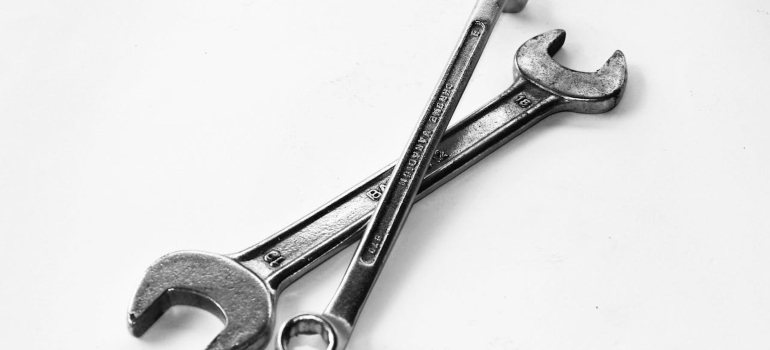Supporting a loved one struggling with addiction can be an extremely challenging experience. It’s important to recognize this role’s impact on your well-being and understand the importance of self-care. Balancing self-care while supporting an addicted loved one is essential because neglecting your needs can lead to burnout and a decreased ability to help effectively. Resources like Harmony Ridge Recovery Center WV emphasize that self-care enables you to stay resilient and supportive throughout the recovery journey.
Understanding How Balancing Self-Care While Supporting an Addicted Loved One Can Impact You?
Supporting an addicted loved one can have a great impact on your physical, emotional, and mental well-being. The constant stress about their safety and future can lead to burnout, anxiety, and depression. You might neglect your needs, which can cause health problems and reduce your ability to be there for them. It’s critical to acknowledge these impacts and take steps to address them. Seeking support from friends, family, or support groups can give you the emotional backing you need. In addition, look for alcohol rehab in WV for your loved one to ensure they get the professional help required. Understanding that your well-being is the most important thing for you will allow you to offer better, more sustainable support to your loved one. Balancing self-care while supporting an addicted loved one is not only useful for you but also boosts your ability to assist them on their recovery journey.

The Importance of Balancing Self-Care While Supporting an Addicted Loved One
Self-care is a basic need of every human being. Taking care of yourself allows you to be more stable and supportive of your loved one. When you’re physically and emotionally well, you can think more clearly, manage crises better, and offer more consistent support. Therefore, engaging in self-care activities such as regular exercise, healthy eating, sufficient sleep, and relaxation tools can greatly improve your overall well-being. Also, setting aside time for hobbies and activities that bring you happiness can recharge your mental and emotional batteries. Self-care also helps prevent burnout, making sure you can continue to support your loved one over the long term. It’s crucial to recognize that seeking help is not a sign of weakness. By prioritizing your health, you can better help your loved one in their path to recovery, including helping them find a reputable drug rehab program that suits their needs.
Setting Boundaries
Setting healthy boundaries is crucial when supporting an addicted loved one. They can stop you from being overwhelmed by your partner’s problems. Moreover, they ensure that you have the energy to take care of yourself. Clear boundaries can also motivate your loved one to take responsibility for their actions and recovery. Here are some key points to consider when setting boundaries:
- Communicate clearly: Clearly express your limits and what behaviors you will not tolerate.
- Stay consistent: Once you set boundaries, stick to them.
- Prioritize self-care: Make sure that your boundaries involve time for self-care and personal activities.
- Seek support: Look for support groups or professional help to boost your resolve.
- Encourage responsibility: Use boundaries to encourage your loved one to seek substance abuse treatment in WV
By establishing and maintaining healthy boundaries, you can create a safe space that respects both your needs and those of your loved one.
Seeking Support
It’s important to remember that you should not go through something this difficult alone. Seeking support from family, friends, or support groups like Al-Anon or Nar-Anon can provide you with a community and a sense of belonging. These groups offer a safe environment to share your experiences. For instance, you will have emotional relief. Once you share your feelings with others who understand your situation, you will feel a gigantic burden falling off your chest. Also, groups often provide practical tips and strategies. Furthermore, if one of you is struggling with addiction, groups provide learning and growth. Listening to the experiences of others can offer new perspectives while navigating the complexities of addiction and recovery. Reaching out for support empowers you to be a more effective and compassionate support system for your loved one.

Managing Stress With Balancing Self-Care While Supporting an Addicted Loved One
Managing stress efficiently is essential for staying well while supporting an addicted loved one. Practicing mindfulness, engaging in regular exercise, and working on hobbies can help you cope with stress. Mindfulness practices, such as meditation and deep breathing exercises, can help you stay grounded in challenging situations. In addition, they are reducing anxiety about the future and relieve stress. Physical activities like yoga, walking, or swimming can also reduce stress and improve your mood. Regular physical activity helps with endorphins, which are natural mood lifters. Also, it provides a healthy outlet for your emotions. Pursuing hobbies you enjoy can offer a much-needed break from caregiving responsibilities. These activities help to shift your focus and give you a sense of accomplishment and joy. However, if you find the stress overwhelming, it may be useful to get into an inpatient program in WV, where you can receive comprehensive support and treatment.
Educating Yourself
When you educate yourself about addiction, it can empower you to support your loved one more effectively. Identifying the nature of addiction, understanding the difficulties your loved one faces, and knowing about the various treatment options available can help you make informed choices and provide better support. There are many resources available, including online articles, books, and support groups, that can provide precious insights into the complexities of addiction. Learning about the different treatment modalities, such as medication-assisted treatment, behavioral therapies, and counseling, will give you a broad view of the available options. For example, while inpatient programs offer intensive, structured support, outpatient treatment is a solution for some. It is better for some people as it allows individuals to receive care while maintaining their daily responsibilities. Understanding these options helps you to fight effectively for your loved one and cooperate with healthcare professionals to develop a customized treatment plan.

Avoiding Codependency
One of the risks of supporting an addicted loved one is falling into the trap of codependency. It involves a huge amount of emotional or psychological reliance on your loved one. Identifying and avoiding codependency is essential for maintaining a healthy relationship. Focus on your needs and make sure that you’re not sacrificing your well-being for theirs. It’s essential to maintain a sense of independence and self-worth, separate from your loved one’s struggles and their recovery process. You must go to family or marriage therapy to gain professional guidance in handling these complex dynamics. Therapy can help you set healthy boundaries, improve communication, and develop coping mechanisms to support your loved one without becoming enmeshed in their addiction. It can also provide a safe space to explore your feelings and learn how to deal with the stress and emotional strain of caring for someone with an addiction.
Dealing With Guilt and Self-Blame
It’s common to have feelings of guilt or self-blame when supporting an addicted loved one. You may feel responsible for their addiction or believe that you should be able to fix everything. It’s important to realize that addiction is a complex disease. Moreover, it is even more important that you are not to blame for your loved one’s struggles. These feelings can be counterproductive and emotionally exhausting. Remind yourself that addiction therapy that works for you and your loved one is crucial.
Furthermore, finding the right support systems is the key to progress. Seek professional help if these feelings become overwhelming, as therapists can give useful strategies for handling guilt and self-blame. Therapy can help you understand that taking care of your well-being is not selfish but needed.

The Importance of Taking Breaks While You Are Balancing Self-Care While Supporting an Addicted Loved One
Taking breaks from caregiving responsibilities is crucial to avoid burnout. Constantly being on call to support an addicted loved one can take a huge toll on your physical and emotional health. Allow yourself time to recharge and participate in activities that bring you joy and relaxation. Whether it’s a hobby, exercise, reading, or simply taking a quiet moment for yourself, just grab the opportunity and take it. These breaks are essential for maintaining your health and energy levels. In that way, you are helping yourself so that you can continue to support your loved one effectively in the long run. Regular intervals away from the stresses of caregiving can prevent feelings of resentment or fatigue from accumulating all the negative emotions. Don’t hesitate to ask for help from other family members or friends when you need a break. Delegating some of the caregiving duties can give you much-needed respite.
Professional Help
Sometimes, the challenges of supporting an addicted loved one can be overwhelming, and seeking professional help becomes inevitable. Therapy or counseling offers customized support and guidance, giving you essential tools to manage this difficult journey. A therapist can help you in creating effective coping strategies as helping someone who is using substances is not easy. Also, they can help you in managing stress and setting healthy boundaries that protect your well-being while supporting your loved one. They provide a confidential space to explore your emotions, discuss worries, and receive objective advice. This professional support equips you with practical skills to maintain your own mental and emotional health. Remember, reaching out for help is not a sign of weakness but a proactive step toward maintaining your well-being and resilience.

Self-Reflection Is Also Very Important
It is important to say that self-reflection plays a crucial role in managing the complexities of supporting an addicted loved one while maintaining your well-being. Taking intentional moments to reflect provides you with the possibility to assess your emotional state, evaluate your caregiving approach, and understand areas that may require adjustment or additional support. By understanding your needs, setting realistic goals, and clear boundaries, you can create a more sustainable caregiving dynamic. Research shows that self-reflection boosts self-awareness, which is crucial in identifying and tackling codependent behaviors that may arise in relationships affected by addiction. In addition, self-reflection empowers you to seek appropriate resources and support systems, such as counseling or support groups, to make your resilience stronger and maintain a balanced approach to caregiving.

Fostering a Healthier Future
Different challenges mark a broad spectrum of addictions in Florida. For example, we have opioids and alcohol, and then stimulants and gambling. Tackling these issues requires various approaches that include prevention, treatment, and community support. By understanding how to balance self-care while supporting an addicted loved one regarding the complex interplay of addiction and its impact on everyone involved, we can develop comprehensive strategies that promote recovery and well-being. With continued advocacy and collaboration, we can create a healthier future for all Floridians affected by addiction. By taking care of your well-being, setting boundaries, seeking support, handling stress, and participating in positive coping mechanisms, you can provide more efficient support to your loved one and maintain your health and resilience. Remember, you are not alone, and help is available.
Reference:
https://store.samhsa.gov/sites/default/files/tip-35-pep19-02-01-003.pdf



